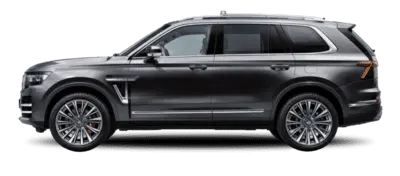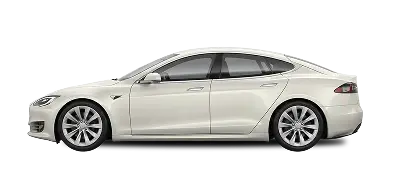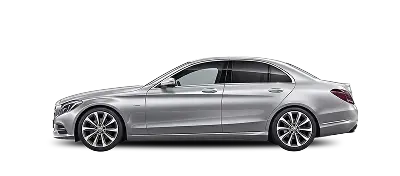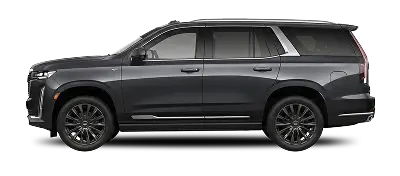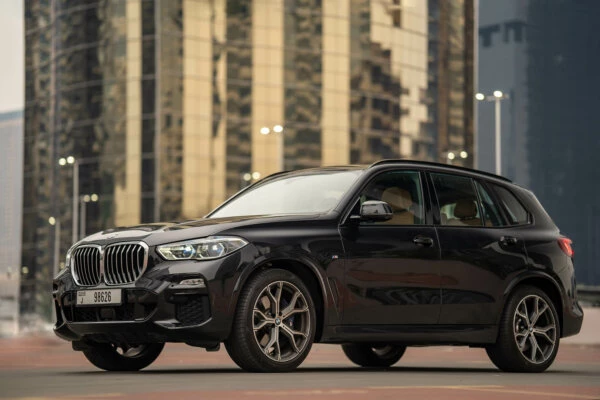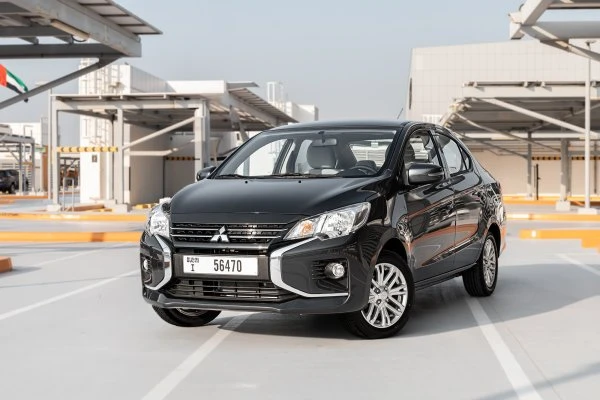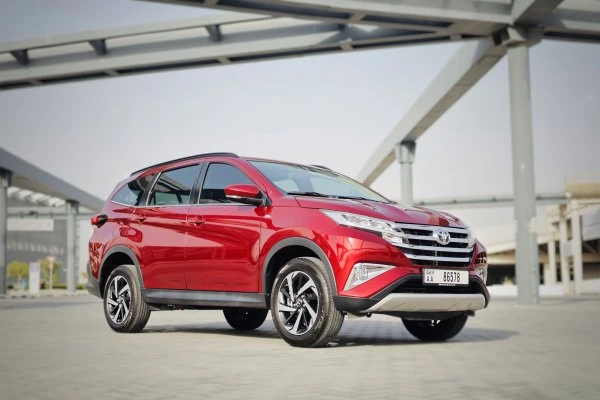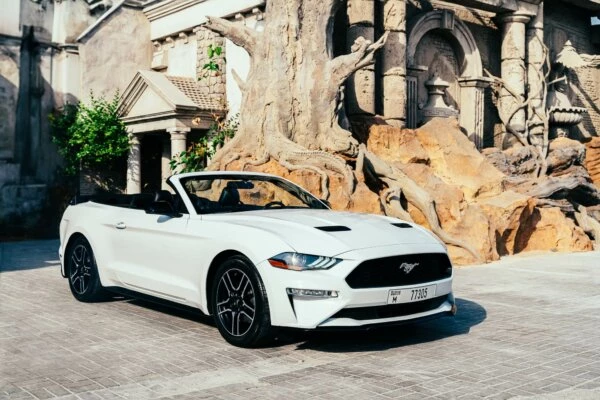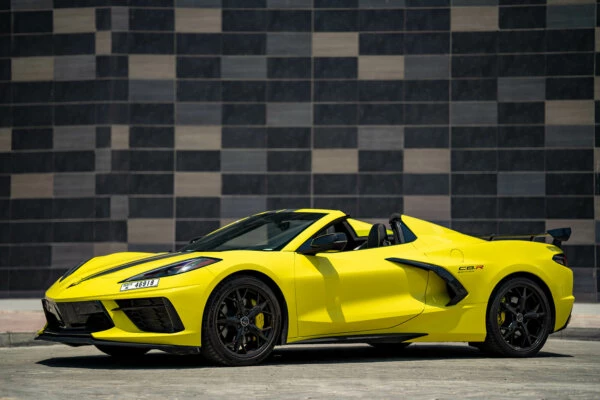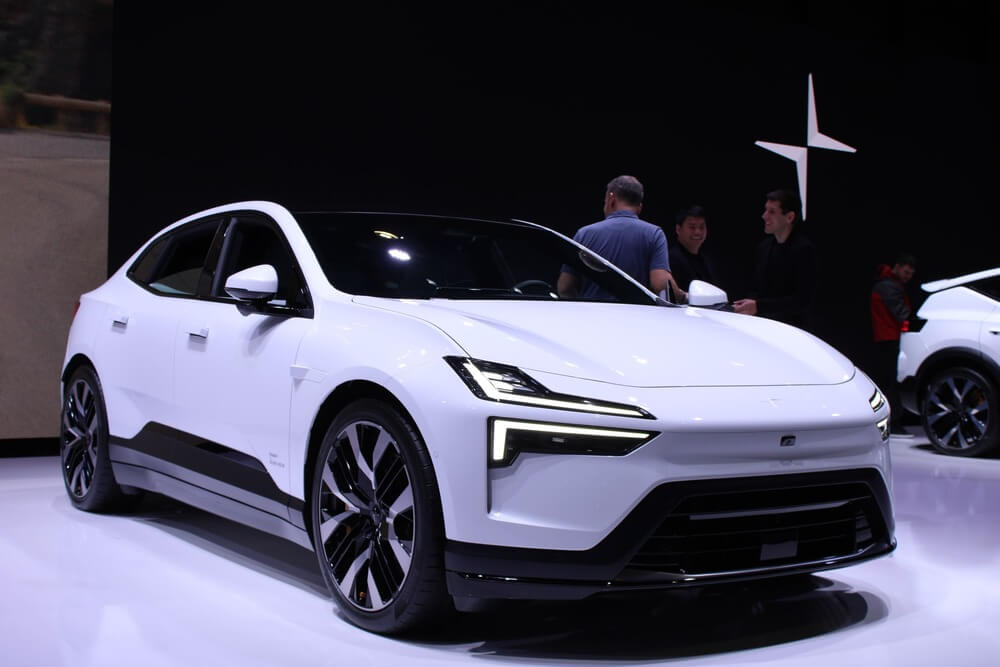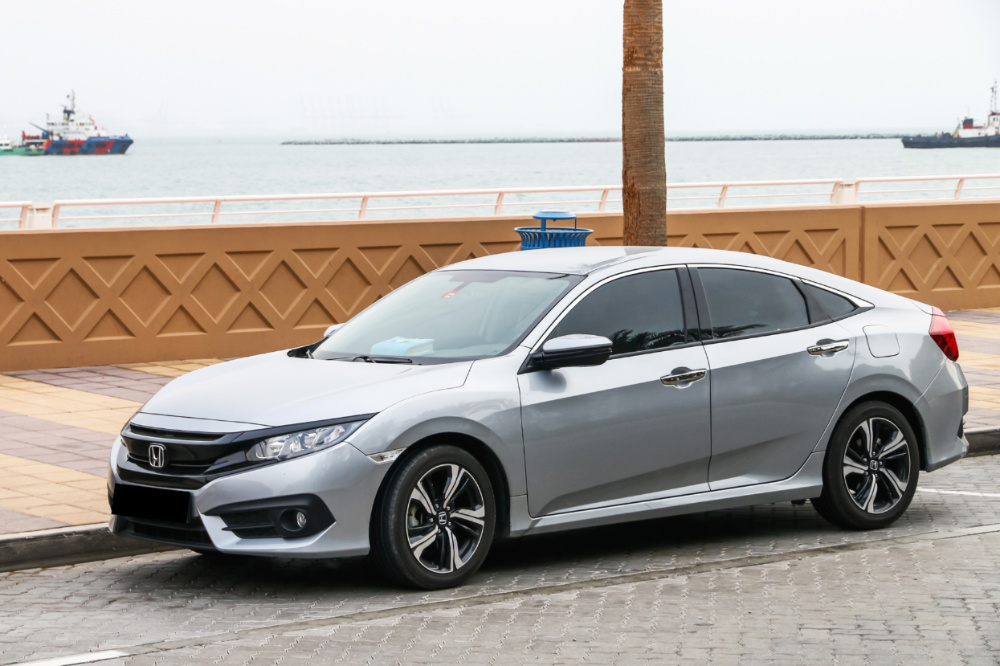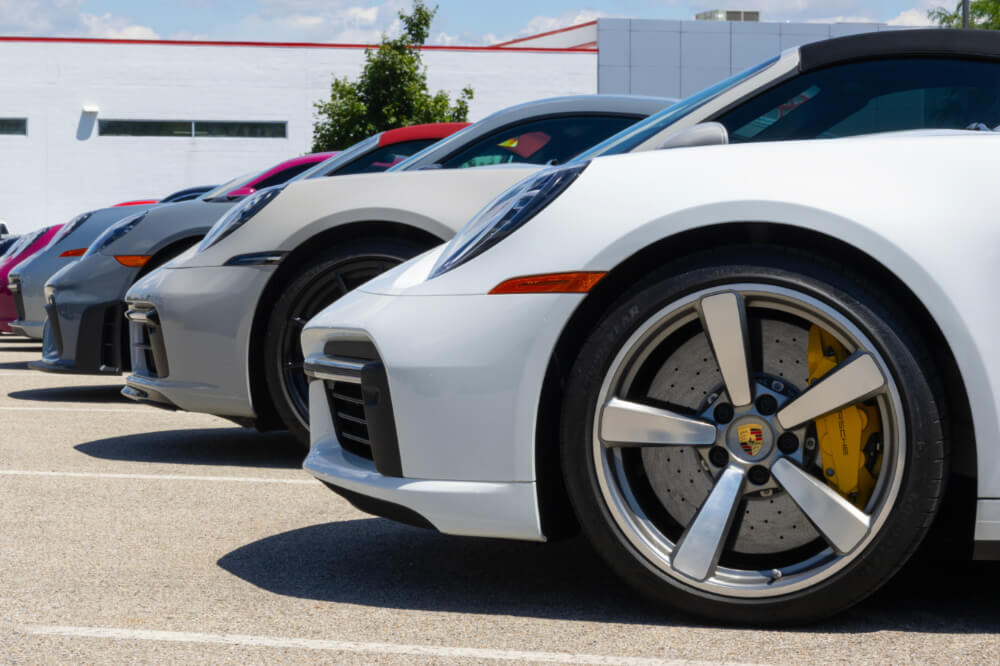- Introduction to GCC and American Spec Cars in the UAE
- What Are GCC Spec Cars? Meaning and Features
- What Are American Spec Cars in the UAE?
- GCC Specs vs American Specs: What’s the Difference?
- American Specs Vs GCC Specs: Pros and Cons
- GCC vs American Spec Cars: Which Is Better for UAE Roads?
- What is the difference between GCC and European specs
- GCC vs Japanese specs
- How to Identify GCC and American Specs Before You Buy
- Final Recap: Making an Informed Choice in the UAE Market
- FAQ
Choosing a vehicle in the GCC region (Gulf Cooperation Council region) has two major options: GCC-spec cars or imported models designed for the US market. These are typically referred to as GCC-spec or US-spec cars. Understanding differences is important for anyone planning to drive, rent, or buy a vehicle in the UAE.
This guide is mainly for new expats, long-term residents, and car enthusiasts who want to understand the differences between American and GCC. We will break down how GCC and American specs vehicles are adapted for the desert climate, what challenges can arise with maintenance, and how ownership affects resale value in the GCC. The article also covers warranties, import processes, and which type of specs may be better for everyday driving in the UAE conditions.
Introduction to GCC and American Spec Cars in the UAE
The choice between GCC-spec and American-spec cars on the Dubai automotive market is important for both everyday drivers and collectors. The term GCC refers to the Gulf Cooperation Council, which includes Bahrain, Kuwait, Oman, Qatar, Saudi Arabia, and the UAE. Many vehicles arrive in the UAE as imported cars, while others are built specifically for the region. Realizing this difference helps buyers prevent unexpected issues with maintenance, performance, or long-term ownership.
- Price Considerations: One of the first things buyers notice is the price difference. Often, a US spec model appears cheaper upfront, but the total cost of ownership can shift once servicing and parts availability are considered.
- Design & Durability: Because American specifications differ from GCC specifications in terms of design, cooling systems, and durability, it is essential to know what suits the UAE roads. Local car dealerships tailor their vehicles to survive the high heat, dust, and humidity.
- Local Guidance: Meanwhile, local dealerships and regional distributors in the UAE provide additional guidance on which standards best suit the region’s environment.
What Are GCC Spec Cars? Meaning and Features
A GCC-spec car must meet regional specifications that take into account the region’s climate conditions.
- Due to the high temperatures, humidity, and dusty conditions prevalent across GCC countries, improved cooling systems, more powerful air conditioning, and reinforced suspension in cars are required to meet international standards.
- American spec vehicles are designed for different environments, and a GCC spec vehicle is engineered by car manufacturers with features that allow it to perform reliably on desert roads. While an imported American model might face overheating or electrical issues, GCC specs in cars must guarantee that components (such as the radiator, filtration systems, and insulation) are optimized for local conditions.
In practical terms, GCC spec and US spec models may look similar from the outside, but their durability and suitability vary greatly. Automotive experts often highlight that GCC specs refer to vehicles built to conform to Gulf standards.
What Are American Spec Cars in the UAE?
American-spec cars in the UAE are vehicles initially built to U.S. (and sometimes Canadian) regulations, then shipped to the Gulf for resale. Many arrive through auctions and dealer channels as American models, while others come off leases or from private sellers in the Canadian market. These units are attractive because American-spec cars often offer rich trim levels, advanced driver-assistance systems, and infotainment packages at a compelling price compared to locally delivered alternatives.
In practical terms, an American-market spec vehicle is engineered to meet U.S. emissions, lighting, and safety rules. An imported American spec sedan or SUV can be a great value. Still, it may require software modifications (radio settings, navigation region), climate-related upgrades, or different fluids to match UAE conditions. American spec vehicle could also have other service intervals or parts numbers, so buyers should confirm local parts availability and warranty support before committing. It helps to compare directly: a GCC-spec car is tuned for desert heat and dust, while an American model may need cooling or filtration tweaks to achieve the same reliability here.
Likewise, a GCC spec vehicle typically includes region-appropriate A/C performance and corrosion protection out of the box. If you import a car yourself, check the build codes, radiator, and condenser, and verify that the navigation system works with Middle East maps and frequencies.
GCC Specs vs American Specs: What’s the Difference?
When comparing a GCC car with its U.S.-market equivalent, begin with thermal management.
- Desert-Ready Systems: Radiators, condensers, coolant capacity, transmission and engine oil coolers, and fan maps are often larger or more aggressive for Gulf use, as cars may spend long hours in high ambient temperatures, experience stop-start traffic, and encounter dusty air. Electrical systems can also vary (heat-resistant wiring looms, alternators, and battery specifications), as can sealing against sand ingress.
- From a Buyer’s Perspective: If you’re buying a car for daily UAE use, note that American and GCC specs diverge in A/C compressor output, refrigerant line insulation, cabin filtration, and underbody protection. The most important distinctions between American specs show up in software and calibration: thermostat set points, fan kick-in temperatures, and knock control can be mapped for cooler climates, which may increase the risk of heat soaking under Gulf conditions.
- Equipment and Usability: American and GCC car specs may differ in navigation region coding, radio frequency steps, and coverage of connected services. Fuel economy labels and range estimates may not accurately reflect local results due to variations in test procedures and gearing.
The key differences between American and GCC-tuned vehicles often impact maintenance and longevity: GCC packages focus on cooling, dust sealing, and materials that resist UV and heat, while U.S. packages emphasize federal compliance and features typically expected in North America.

| GCC Specs | American Specs | |
| Reliability | Suitable for driving in high temperatures, equipped with a good air conditioning and cooling system, and prepared for dusty conditions and long-term operation on highways, ensuring more stable performance in UAE conditions. | May overheat in extreme heat in the UAE. Was engineered to meet U.S. emissions, lighting, and safety standards. |
| Equipment | The vehicles are equipped with everything necessary for driving in this region. In particular, emphasis is placed on the cooling system. | It can be equipped with a wide range of advanced technologies for driving and comfort. |
| Safety | All safety technologies include everything necessary for driving on local roads, in accordance with the region’s traffic rules. | Depending on the model and trim level, it may include more advanced driver assistance technologies and a more reliable safety system. |
| Resale value | Much easier to sell in the UAE, with strong resale demand. | It is much more challenging to sell in the UAE, as buyers are more price-sensitive. |
| Ownership experience | Predictable costs, ease of maintenance and repair, and warranty. | Ownership may entail higher spare parts and servicing costs, as well as additional inspections. |
| Price Considerations | The cost may be lower than American Specs, but in the long run, maintenance costs are lower and more predictable. | The initial cost may be lower than GCC specs, but there is a factor of unpredictability in expenses. |
| Design & Durability | Region-specific AC, UV, dust, and corrosion resistance (higher-capacity AC systems, UV-resistant interior plastics, reinforced seals, additional dust filtration, corrosion protection for coastal conditions). Calibration for heat, use of durable materials (heat-resistant rubber seals, wiring insulation rated for high temperatures) for protection against environmental and climatic factors. | American-spec cars are built to handle different climates, but they are not specifically designed for the extreme conditions. They are intended for milder environments. |
American Specs Vs GCC Specs: Pros and Cons
For many buyers, an American-market model is synonymous with cost savings and features. In some cases, the price difference between American imports and GCC versions is significant. You also receive generous equipment, including advanced infotainment, safety technologies, and luxury options. An American-spec car may come with trim levels rarely seen in the Gulf.
However, the drawbacks are equally important to weigh. Local drivers quickly notice the American specs and GCC specs variations in terms of cooling, suspension, and electrical calibration. Because American specs may not fully match the region’s climate, overheating and early wear are common problems. Servicing can be more complicated, and warranties may not apply to these imports.
Another issue is long-term value. Dealers are aware of the difference between imported cars and locally delivered ones, so resale prices are typically lower. The resale value in the UAE usually favors GCC models, as they build more confidence among second-hand buyers.
GCC vs American Spec Cars: Which Is Better for UAE Roads?
When deciding between a GCC model and an American-Spec car, the right choice often depends on the buyer’s lifestyle, daily use, driving habits, and tolerance for long-term maintenance. Below are the primary considerations:
- Reliability: American-spec cars are designed for varied climates, but not specifically for extreme Gulf conditions. The main difference between an imported and a GCC is that they are designed for different climates. GCC vehicles come with reinforced cooling systems, while American-spec cars are designed for milder environments.
- Equipment: U.S. imports may include attractive infotainment and safety options not always available in GCC specs.
- Safety: GCC models comply with GCC regional safety regulations, providing an advantage in terms of compliance and certification.
- Resale value: GCC units are often easier to sell and have a stronger market perception than American spec cars in UAE.
- Ownership experience: While U.S. imports may be cheaper initially, they can require more adaptation to thrive in Gulf conditions.
What is the difference between GCC and European specs
| GCC Specs | European Specs | |
| Reliability | Improved cooling systems, more powerful air conditioning, and reinforced suspension in cars are required to meet international standards. | Designed for driving in moderate climates, without emphasis on heat resistance. |
| Equipment | These vehicles are equipped with technologies focused on practical features, including a robust AC and engine cooling system. | It can be equipped with more driver-friendly technologies and media. |
| Safety | Adjusted to regional restrictions and driving conditions. | Engineered to comply with strict EU safety and emissions regulations. |
| Resale value | Higher demand for GCC specs and easier resale in the UAE market. | Less resale demand than for GCC models. |
| Ownership experience | In the long term, ownership is more advantageous, as maintenance costs are more predictable. | Long-term ownership may necessitate specialized maintenance and pose challenges in sourcing essential spare parts. |
| Price Considerations | Higher initial cost due to heat-optimized components (improved AC, cooling, filtration), but it offers better resale value in the Middle East market, qualifies for a local warranty, and comes with official dealer support, reducing long-term ownership and maintenance risks. | Lower initial purchase price, limited or no local warranty coverage, reduced resale value in the GCC market, and potential additional expenses for climate adaptation and maintenance. |
| Design & Durability | Interior materials are selected for higher heat and UV exposure, there is additional dust- and sand-protection, and cooling systems are calibrated for hot-climate operation. | Interior materials are designed for moderate climates, dust protection is standard, and cooling systems are calibrated for European climate conditions. |
GCC vs Japanese specs
| GCC Specs | Japanese Specs | |
| Steering wheel | Left-hand drive (LHD) complies with UAE road standards. Typically calibrated for local driving conditions, with Arabic labels on mirrors and controls to support region-specific coding and documentation. | Left-hand drive (LHD) is the standard for cars imported and sold in the UAE. Right-hand drive (RHD) is used only for JDM cars intended for the domestic Japanese market and is not used for official operations in the UAE. Standard steering and control devices designed for the Japanese market and other export markets may not have Arabic lettering and region-specific coding. |
| Registration | Meets GCC and UAE safety and environmental standards, making registration easier thanks to regional compliance documentation. | May need additional inspection or modifications to comply with UAE safety and environmental standards before registration, and local authorities might request verification of compliance. |
| Reliability | Reliable option for the UAE’s extreme heat, sand, and long-distance driving in Gulf conditions. | Focus on reliable driving in urban conditions and moderate climates. |
| Equipment | Focus on cooling systems in hot conditions, such as engine cooling systems and powerful air conditioning, to keep the interior cool. | Advanced navigation, innovative driver technologies, and reduced exhaust emissions. |
| Safety | Full compatibility with regional regulations and local driving conditions. | The vehicles are designed in accordance with Japanese safety standards. |
| Resale value | Due to climate adaptation, warranty and service, regulatory registration, and market popularity, it has a higher resale value in the UAE. | Demand for resale is lower compared to GCC specs. |
| Ownership experience | Predictability in maintenance and repair costs in the UAE. | There may be a shortage of spare parts and servicing capacity. Some spare parts may need to be imported. |
| Price Considerations | Adaptation to regional conditions affects pricing, resulting in higher prices than Japanese specifications. | Imported models may be priced lower than GCC models, mainly used ones. |
| Design & Durability | The manufacturing process accounts for climatic conditions and vehicle requirements, which is why the focus is on durable, practical materials and technologies. | Focus on compactness, minimalism, carbon footprint reduction, and safety. |
How to Identify GCC and American Specs Before You Buy
In the Gulf Cooperation Council, cars are sold under specific regional regulations, and spotting the correct details is key.
- Documentation should include service stamps marked as ‘OK’ from authorized dealers, and buyers should confirm the presence of a car with warranty coverage when possible (for both new and used cars).
- Request service records for a GCC model and compare them with those for an imported car.
- To identify the GCC car specs, check the VIN plate, radiator size, and AC components. These indicate whether you are genuinely looking at a car with GCC specifications.
- Market reality shows that many used cars in the UAE are imported from North America. Some American specifications may look appealing, but it is essential to note that the differences between GCC specifications and American-spec cars may not be immediately apparent.
- When reviewing options, keep in mind that GCC specs and American specs in the UAE serve different types of buyers, and the wrong choice can lead to higher costs later.
A GCC car, compared to an import, usually offers better climate control and a higher resale value. For renters and first-time buyers, verifying these specs before signing is a critical step.
Final Recap: Making an Informed Choice in the UAE Market
At the end of the day, the UAE market offers options for both GCC and American, as well as imported cars. Preferences vary, but many shoppers notice stronger resale values within the GCC countries due to regional demand and the reliability of local products. In fact, GCC countries, due to better adaptation to harsh environments, often favor local specs.
Still, imports remain popular. For some, a U.S. car offers luxury and tech appeal, even if risks exist. The GCC region, because of concerns such as overheating or warranty gaps, makes them less predictable. Buyers must weigh what matters more: upfront savings or long-term confidence.
Compared to an imported American, a GCC version typically offers greater peace of mind, especially in terms of resale. The resale value in the GCC region tends to remain higher for vehicles that comply with GCC standards. However, many still enjoy buying an American spec for its features, provided they understand the trade-offs. Dealers confirm that the resale value within the GCC is more substantial for local versions, and this trend is also observed across GCC countries.
If a car is GCC, it often inspires more trust in the used market. If you’re buying a car for short-term use or used cars in UAE, a lower entry price, imports can still be a viable option. The final decision between American and imported cars depends on your budget, driving habits, style, and the level of risk you’re comfortable managing.
When choosing a car in the UAE, buyers should compare price, performance, cooling systems, and ensure it meets GCC safety regulations. Checking for certification or compliance documents confirms the car is approved for local roads, preventing registration or insurance issues. For those who prefer flexibility instead of ownership, options like car rental in Dubai make it easy to experience different models without long-term commitments.

